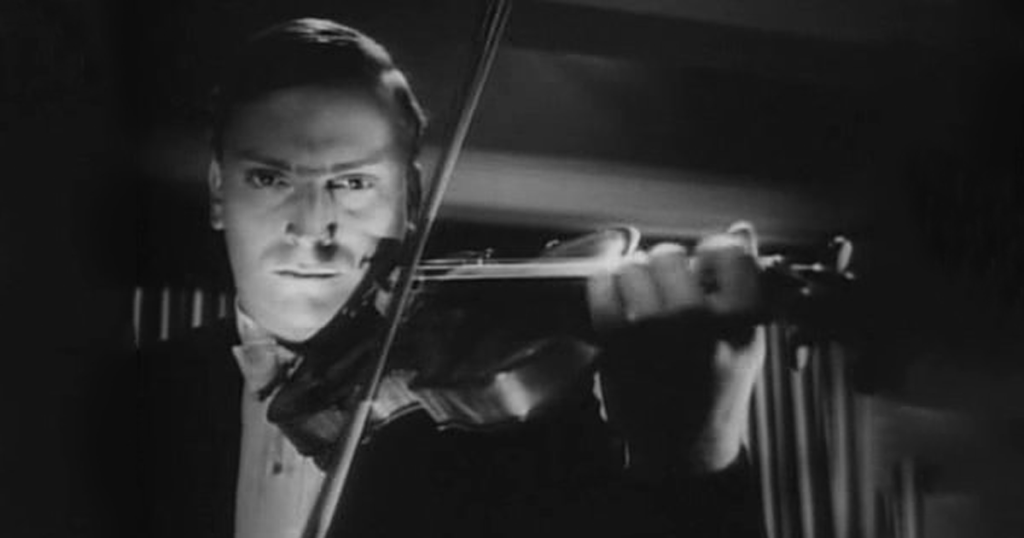
In the aftermath of the Second World War, German artists who had any connection to the Third Reich, great or small, underwent a period of denazification. So it was for the conductor Wilhelm Furtwängler. The Americans investigated him thoroughly, and he emerged unscathed—this was a man, after all, who had repeatedly stood up to the Nazis, refusing to participate in any of their propaganda. Yet in the eyes of many antifascists, Arturo Toscanini, among them, no tribunal could so easily remove the stain of perceived collaboration. That Furtwängler had continued to lead the Berlin Philharmonic—Goebbels’s orchestra—during the 1930s and ’40s was enough to convince his detractors that he should not be allowed to appear in the United States. For the American violinist Yehudi Menuhin, however, the idea of boycotting Furtwängler made little sense, and he suspected that a good bit of competitive rivalry lay behind the campaign against the German.
In his book The Furtwängler Record, John Ardoin notes that in early 1946, Menuhin cabled Robert A. McClure—then in charge of the Information Control Division, which oversaw German broadcasting during the postwar American occupation:
Unless you have secret incriminating evidence against Furtwängler supporting your accusation that he was a tool of [the] Nazi Party, I beg to take violent issue with your decision to ban him. The man never was a Party member. Upon numerous occasions, he risked his own safety and reputation to protect friends and colleagues. Do not believe that the fact of remaining in one’s own country is alone sufficient to condemn a man. On the contrary, as a military man, you would know that remaining at one’s post often requires greater courage than running away. He saved, and for that we are deeply his debtors, the best part of his own German culture.
Menuhin hadn’t performed with Furtwängler before but had gleaned enough from recordings and word of mouth to rank him beside Bruno Walter in his own pantheon of conductors—“an exponent of the German tradition at its most exalted,” as he writes in his autobiography, Unfinished Journey. Menuhin was convinced that the only mistake this “aristocrat in the jungle” made was to overestimate the power of music to overcome political opinion. Thus, Menuhin writes, the conductor “found himself nowhere, a foreigner in Nazi Germany and a Nazi in the eyes of foreigners.”
During a press conference in New York, Menuhin defended Furtwängler—an occasion that did not go down well with American Jews, to say nothing of the tabloid press. Menuhin remained undeterred. He immediately said yes when the American military government in Berlin invited him to perform in the city. “I much wanted to go,” he writes, “as a Jew who might keep alive German guilt and repentance, and as a musician offering something to live for.” By this time, Furtwängler had been reinstated to his post at the Berlin Philharmonic, and so, on September 28, 1947, these artistic giants joined forces to play the Beethoven Violin Concerto—the first performance by a Jewish artist with the conductor since the liberation of Germany. “As I had imagined,” Menuhin writes, “to play the greatest German music with this greatest of German conductors was an experience of almost religious intensity.” But then, he recalls, “I came down from the clouds to find myself a traitor.” Menuhin, now at the center of an international scandal, was denounced and roundly vilified. Time has judged in Menuhin’s favor, but the most compelling evidence to justify the evening is the recorded performance itself—as lovely and moving a reading as one will ever encounter.
How serene are those first few orchestral bars—lyrical and quiet and understated. Furtwängler was known for the flexibility of his tempos, and here Menuhin’s approach is just as fluid; so sympathetic are violinist and orchestra (the performance bears all the hallmarks of the most intimate chamber music) that it’s a wonder the artists had never worked together before. Listening to this performance, I sometimes sense an almost improvisatory quality. Few recordings of familiar music create this illusion of the work being invented on the spot. The interpretation is mysterious and heartfelt, earnest and intense, but perhaps above all, spiritual—deeply spiritual, especially in the haunting development section in the middle of the first movement.
To say that the playing is beautiful isn’t quite sufficient, but much of this beauty, I think, comes from the purity of Menuhin’s solo line, free of mannerisms and flourishes—his artistry is as unadulterated as a cold, clear mountain stream. I often associate Furtwängler with heroic torrents of sound, yet here is some of the most exquisite piano and pianissimo playing; the orchestra’s violins especially are at their expressive best. The slow movement unfolds like a quiet act of worship, and in the spritely finale, a note of melancholy seems to temper what should be an outburst of joy. This isn’t the kind of ebullient interpretation I ordinarily associate with this movement. When the music alternates between major and minor keys—during a wonderful call and response between orchestra and violin—the darkness seems to come through much more than the light. It’s almost as if we are hearing the Hasidic Nigun, the prayer of lament in which the optimism of a life with God and the knowledge of suffering in the here and now can be sung in equal measure. Perhaps I am reading too much into this performance, allowing its historical circumstances to color my perceptions, but no matter: this is music as prayer, music as solidarity, but music, above all, as reconciliation.

